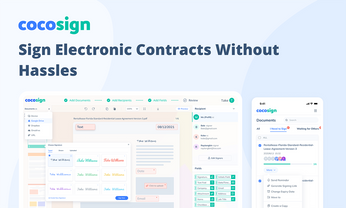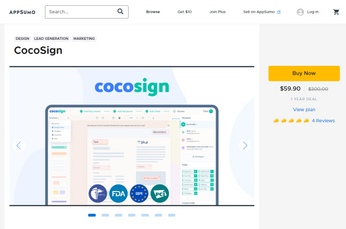5 Ways to Keep Your Remote Employees From Burning Out
The pandemic has birthed a new flexible work model that gave employees the autonomy to choose between an in-office, remote, or on-the-go setup. Remote work, specifically, has made it easier for full-time employees, busy parents, and employees situated in distant locations to stay on top of their jobs. However, it has also blurred the line between work and personal life.
According to data from Gallup, employee burnout was already a concern even before the pandemic started. Now that 41% of the U.S. workforce has shifted to a remote setup, full-time remote workers report experiencing more burnout than on-site workers. So what can leaders do to help?
Acknowledge That Burnout Is Real
Danny Trichter, the co-founder of Accessibility Checker, said, “I think the first step to addressing this issue is acknowledging the fact that burnout is a real problem, especially during these times. Doing so would help managers stay proactive in preventing the roots of burnout.”
Gary Parker (President) of Gary Buys Houses states that if you think about it, turning a blind eye to the issue does a company more harm than good. For one, burnout causes a lack of motivation, a negative work attitude, weak problem-solving skills, and decreased attention span. Looking at it at an organizational level also means lower productivity, employee retention, output, and engagement.
Introduce the Knowledge Base: Providing employees with access to a comprehensive 'knowledge base' containing resources on stress management, mental health, and work-life balance can significantly mitigate the effects of burnout and foster a healthier work environment. Looking at it at an organizational level also means lower productivity, employee retention, output, and engagement.
Giving Rewards to Boost Morale and Engagement
Another strategy for leaders to consider is rewarding employees with incentives that resonate with their interests and passions, which can also help avoid employee layoffs by boosting morale and maintaining engagement during challenging times.
Consider rewarding employees with corporate glass awards and trophies, tailored to recognize their individual achievements and contributions, thereby fostering a culture of appreciation and motivation within the organization.
For instance, offering unique rewards like PC game items can be an exciting way to appreciate their hard work. A creative example could be gifting items such as the " Fortnite Spiderman" outfit or similar themed accessories from popular games. This not only acknowledges their efforts but also adds a personal touch, showing that the company understands and values their hobbies.
Establish Open Communication
Aside from recognizing the issue, establishing open communication is also important. According to a report from Gitlab, 17% of remote workers said that feeling disconnected or isolated is one of their biggest challenges. John Scott, Owner, RedMoonPie added, “Remote work can feel isolating. Providing your employees a safe space to voice out their concerns will help managers better connect with their employees, provide them with a meaningful response, and make them feel more valued. Especially in remote work for small businesses, setting up communication channels such as instant messaging platforms offers a laid-back environment for employees to voice their concerns.”
Another way to make your employees feel heard is by organizing private virtual meetings using high-quality AI meeting assistant tools suggested by Krisp. This fosters efficient communication, allowing for effective problem-solving without the need for face-to-face discussions. Incorporating workforce scheduling software ensures optimal staff allocation, improving productivity and reducing scheduling conflicts in a seamless, automated manner.
While virtual meetings serve as an excellent alternative, there are instances where nothing quite matches the effectiveness of in-person collaboration. In such cases, business travel emerges as a solution, enabling teams to engage in meaningful face-to-face meetings, build stronger connections, and foster a sense of unity.
Cut Back on Meetings
We've all been in a meeting that could have been an email, and while scheduling meetings is a great way to connect, track your team's progress, and stay on the same page, too much of it can actually cause fatigue among your employees. According to Liam Wilson, editor in chief of Lottery' n Go, unnecessary meetings that take up a lot of time from your employees' working hours heighten their job stress and negatively affect their productivity.
According to Bytensky Shikhman Lawyers, to make your meetings more helpful than stressful, make sure to structure your meetings throughout a workday or workweek in a way that would leave your employees enough time to tend to their day-to-day responsibilities. It's also important to plan your meeting agenda with an online assistant ahead of time. Doing so prevents unnecessary gossip and other unrelated topics from wasting your time and will make your meetings more productive and worthwhile.
Setup Well-Being Programs
According to Rachel Davis, founder of SoulFactors, employers can prevent burnout in the workplace by developing programs and policies that support their employees' mental health. In fact, a survey by the National Alliance on Mental Health reported that one in five adults in the U.S. experiences some form of mental illness, yet only one in three who need help would get the support they need.
As part of these well-being programs, encouraging employees to play solitaire games relax during breaks through Workday integration can be a simple and effective way to help them unwind and reduce stress throughout their workday.
Asmat Khan of Ledask states that establishing well-being programs such as mental-health leaves, seminars that teach them to cope with stress, and even addressing unreasonable deadlines will ensure your employees' mental health is a top priority.





